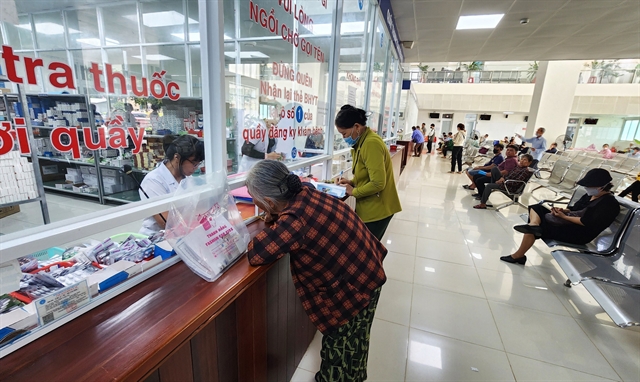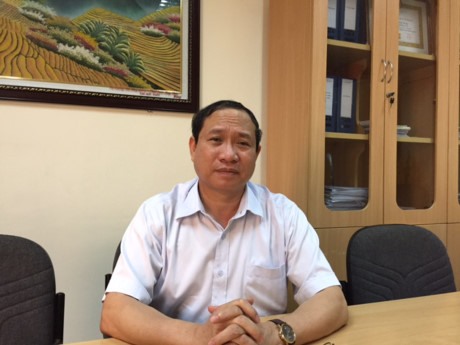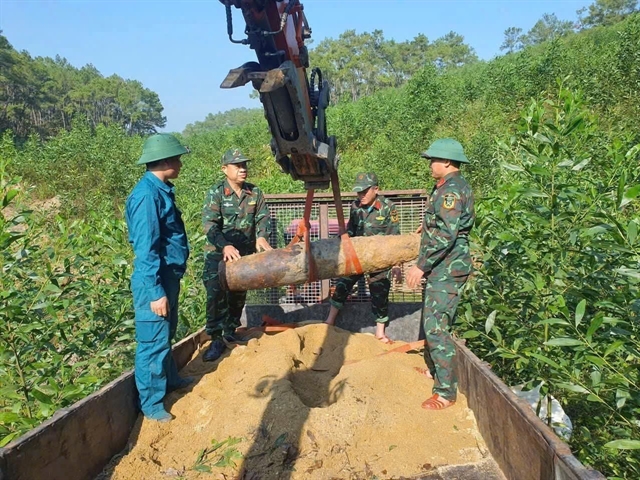 Opinion
Opinion

Ma Quang Trung, director of the Department of Economic Co-operation and Rural Development, under the Ministry of Agriculture and Rural Development, speaks to Việt Nam News Agency on how to help new co-operatives work efficiently.
 |
Ma Quang Trung, director of the Department of Economic Co-operation and Rural Development, under the Ministry of Agriculture and Rural Development, speaks to Việt Nam News Agency on how to help new co-operatives work efficiently.
What’s the role of the collective economy, particularly the co-operative in our national economy?
The role of the collective economy is strongly reflected in Resolution 26 of the Party Central Committee on agriculture, farmers and rural areas. Reviewing its implementation, the Party Politburo reiterated its determination to continue the national renewal process while developing the effectiveness of the country’s collective economy.
Meanwhile, the National Assembly has also enacted the 2012 Co-operative Law and the Government has issued instructions and specific policies to give a push to collective economic development, in which the co-operative is the major driving force.
As we all know, following the successful implementation of the Party’s policy on the “contractual arrangement with farmers No.10” and the Instruction 100, positive changes were reported in various domains of the country’s economy. At present, Việt Nam is in the course of integrating far and wide internationally, particularly in the field of climate change and food security.
If our agriculture, the country’s primary industry, keeps depending on the production of the 12 million farming households on 70 million scattered pieces of land, for sure, it can’t become a major rice producer. Currently, our country is a major rice exporter.
If we want to turn our national economy into a commodity economy, the only way is to call on all the farming households to embark on the path of collective economic development, of which co-operatives are the core. The co-operative will then become a focal point in managing and overseeing the quality of the products and the products’ consumption.
In such a case, enterprises only need to contact the co-operatives and become a focal point in investment in agriculture. Such a close link will become a guarantor for a better production, a higher price, food safety and sound environment for our primary agricultural industry.
For example, Việt Nam now has about 300,000 hectares of sugar cane. If sugar mills want to buy it, they have to sign contracts with 300,000 farming households plus 1.1 million labour households. Things become complicated. Finally, the results might not be as good as expected.
A lesson from the Lam Sơn Sugar Mill shows that with good co-operative development, the mill only needs to oversee the management of 40 sugar cane growing co-operatives.
What’s your assessment of the development of co-operatives since the Law on Co-operatives came into force in 2013?
In the first three years after it came into force, for many people, their understanding of the true nature of the Co-operative Law was flimsy and what were the differences between the new law and the old law.
According to the latest report, the number of co-operatives operating efficiently is low and the monthly income of each co-operative member is just about VNĐ1 million. This is good food for our thoughts on how to attract people to work in co-operatives.
I’m afraid to say that many people still prefer the old form of co-operatives than the new form. Adding to that, our guiding documents on the implementation of the new co-operative law have not yet been comprehensive, particularly the guiding implementation documents. However, in the two years of 2016-2017, the number of co-operatives earning more income has increased considerably from 11 per cent to 33 per cent.
I’m confident a silver lining has appeared on the horizon for the positive development of co-operatives.
What solutions should we introduce to help co-operatives operate successfully?
In my opinion, an important factor is that co-operatives must have suitable production scope and scale as well as suitable co-operative members. What’s most important right now is to have the right co-operative model for each economic sector. We also need different models for different production.
Another point I want to emphasise here is that we should give newly set up co-operatives special treatment right from their early stage.
In my opinion, co-operatives should know their strengths and weaknesses - and the demands of the market. What’s more important is the connection between the co-operatives and the enterprises as well as the outlets for their products. What’s more important is that the co-operative products must be safe from disease. The efficiency of the co-operatives doesn’t depend entirely on their revenue, but on the income of co-operative members.
To give a push to agricultural co-operatives, the Ministry of Agriculture and Rural Development has developed a Decree on supporting policies for co-operative alliance in production and consumption of agricultural products. This will soon be presented to the Government for approval.
In addition, we have also submitted to the Government our proposal to reform and develop 15,000 co-operatives and agriculture co-operative alliance by 2020._VNS




